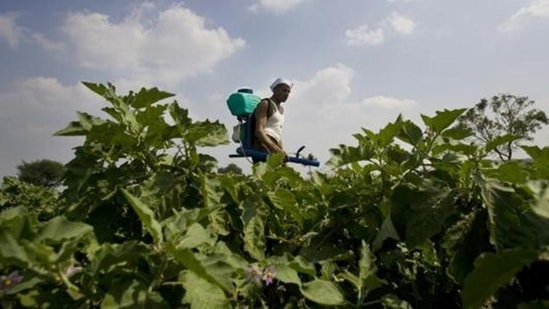Charting a sustainable future for India’s GM crop policy: An urgent need for clarity and consensus
SC's verdict on GM mustard emphasises the need for an inclusive national policy balancing innovation, health, and environmental sustainability in agriculture
On July 23, 2024, the Supreme Court of India delivered a significant split verdict regarding the genetically modified (GM) mustard hybrid, Dhara Mustard Hybrid-11 (DMH-11), prompting discussions on the future of genetically modified organisms in agriculture. The ruling comes in the wake of public interest litigations challenging the approval of GM mustard. It highlights the criticality of this issue to India's agricultural sector, food security, and public health. As India confronts the dual challenges of a growing population and climate change, the need for a comprehensive national policy on GM crops has never been more pressing.

Supreme Court calls for inclusive GM crop policy
The Supreme Court's directive to the Centre emphasises the necessity of consulting all stakeholders, including state governments, farmers, and agricultural experts, during the development of this national policy. This approach recognises that the debate surrounding GM crops cannot be one-sided; instead, it demands a multi-faceted consideration of scientific data, economic implications, and ethical concerns. The Court's decision underscores the need to carefully evaluate GM crops' potential benefits and risks, thus ensuring that policy evolution is not just a bureaucratic exercise but a gathering of collective wisdom.
The divergent opinions of Justices B V Nagarathna and Sanjay Karol bring to light essential considerations in this debate. Nagarathna’s concerns about public health implications and the proper representation of diverse voices in decision-making reflect a growing consciousness of the risks of assuming blanket approval of GM crops without rigorous assessments. Her opinion points to the necessity of a precautionary approach, particularly in light of what was termed a "gross violation of public trust" concerning prior approvals, which lacked comprehensive assessments of health impacts.
Conversely, Karol’s ruling that banning GM crops may not be warranted and should be within the policy domain raises critical questions regarding the balance between innovation and caution in agriculture. His support for fostering GM crops under strict regulatory supervision indicates faith in scientific progress while recognising that recommendations from expert bodies should not be trivialised. This difference in judicial perspectives emphasises the complexity of the GM crops issue—one steeped in science, policy, ethics, and public sentiment.
Balancing tradition and innovation in India's GM crop policy
India’s agriculture has long relied on traditional farming methods, yielding a mixture of crops, which foster biodiversity. The introduction of GM crops, like DMH-11, can enhance yields and mitigate the effects of climate change, such as droughts and pests. However, the historical context must be acknowledged: the only GM crop currently approved for commercial cultivation in India is Bt cotton, with the continuous deliberation over GM food crops as a reflection of societal apprehensions around food safety, environmental impact, and farmer rights.
To address these complexities, a national policy must prioritise transparency and extensive public consultations. A collaborative model involving scientists, farmers, industry representatives, and civil society organisations can create a balanced approach where all voices are heard and all concerns are considered. Moreover, the regulatory framework must be robust enough to address issues like environmental safety, health impact assessments, and ethical considerations regarding biotechnological interventions.
Notably, the policy should not narrowly focus on introducing GM crops but also contemplate the broader implications for food sovereignty and biodiversity. As farmers increasingly face uncertainties due to climate change, introducing resilient, high-yield crop varieties must be executed cautiously, respecting indigenous farming practices and prioritising local food systems. An emphasis on sustainable agricultural practices harmonising with scientific advancements represents a balanced approach to achieving food security.
Embracing global cooperation in India’s GM crop policy
Beyond the internal dynamics of policy-making, there is a pressing need for international cooperation. The global landscape around GM crops is rapidly evolving, with many countries embracing biotechnology to tackle food security issues. India can learn from the global experiences of regulating GM crops and establishing guidelines that mutually benefit local ecosystems while adhering to international standards.
The Supreme Court’s directive offers a pivotal opportunity for India to reevaluate its approach to GM crops as we stand at a critical juncture in our agricultural history—the inherent tensions between innovation and caution present opportunities for dialogue and collaboration among diverse stakeholders.
As the Centre formulates this national policy over the upcoming months, it is crucial to ensure that deliberations are inclusive, transparent, and scientifically grounded. In doing so, India can navigate the complexities surrounding GM crops with clarity and purpose, ensuring the most sustainable path forward for its agricultural future while safeguarding the health of its citizens and the integrity of its ecosystems. Addressing these concerns now is essential for the continued resilience and sustainability of Indian agriculture.
Anjal Prakash is a Clinical Associate Professor (Research) at Bharti Institute of Public Policy, Indian School of Business (ISB). He teaches sustainability at ISB and contributes to IPCC reports.
All Access.
One Subscription.
Get 360° coverage—from daily headlines
to 100 year archives.



HT App & Website







